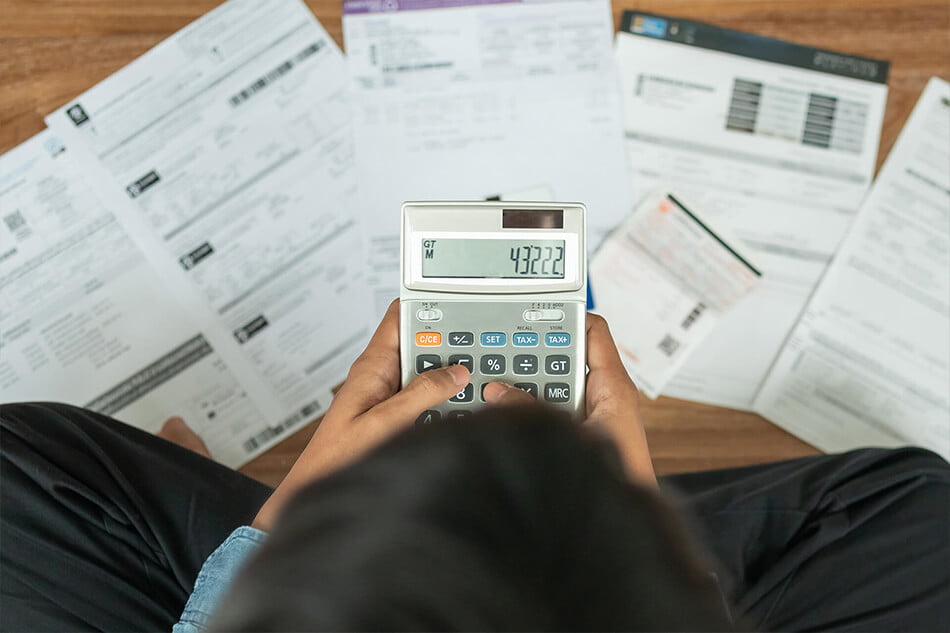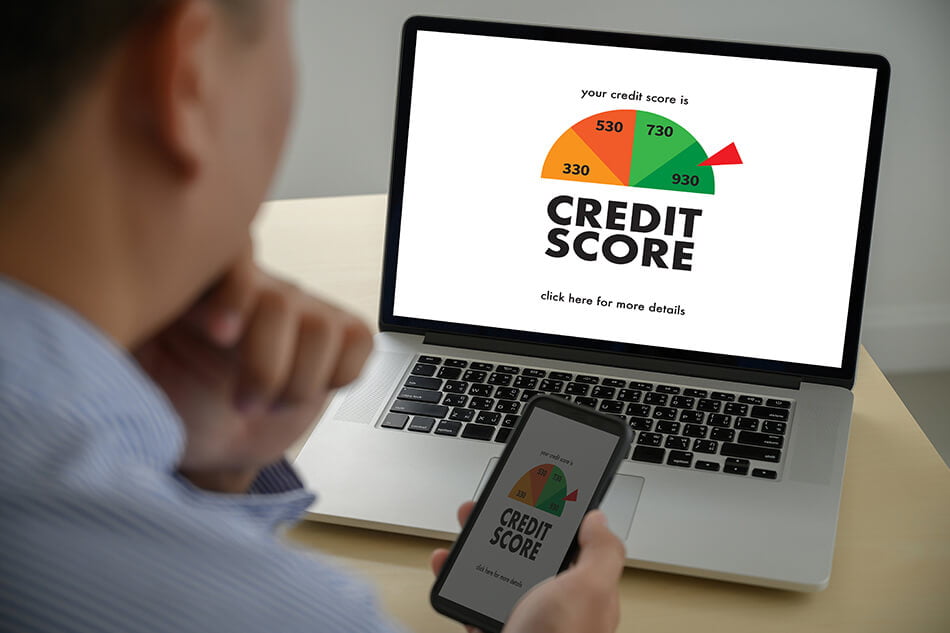As experienced mortgage brokers, we often get asked at Lendstreet how can I pay off my mortgage faster? With 67% of the Australian population owning a house, it’s common for Aussies to pay off their mortgage quicker.
However, if you’re planning on increasing your monthly repayments or making extra repayments, there’s a number of important things you need to know.
As we’re committed to finding logistical solutions for current or prospective homeowners, we’ve created a comprehensive guide just for you. We’ve included all the necessary information to help you start saving on your mortgage today!
So, keep reading to find out what happens if you make more frequent repayments, open up a mortgage offset account, or refinance your loan.

Make Extra Repayments
Firstly, it may seem straightforward, but the majority of homeowners that save money on their mortgage make extra repayments. This is because the shorter your repayment time is, the less overall interest you will pay on your loan.
To begin planning for extra repayments, try using our dedicated Repayment Calculator. All you need to do is input how much you’ve borrowed, the loan type, and interest rate, and we’ll do the rest for you!
These extra repayments can also be accessed at a later date via redraw services, so just think how important this may be for a rainy day!
Extra Repayments on Fixed-Rate Mortgages
When considering extra repayments, you’ll need to check the terms and conditions of your mortgage. If you have or are planning to take out a fixed-rate mortgage, you’ll more than likely face a limit on your repayments.
Depending on your lender, you’ll have a maximum amount per year of extra repayments. This means that with a normal 30-year mortgage, each year will have a cap on repayments, so you can’t pay off your loan as quickly as you might like.
Usually, lenders such as banks that write your fixed-rate mortgage will allow a maximum of $20,000 in additional repayments. Also, note some lenders only allow $10,000.
This is extremely important because if you pay more than this maximum amount, you may be charged an Early Repayment Adjustment Fee (ERA).
If you want to pay off your mortgage faster without a yearly cap, we recommend choosing or changing to a variable-rate mortgage.
Extra Repayments On Variable-Rate Mortgages
With a variable-rate mortgage, you can make unlimited extra repayments without any penalties. This means you can set your own pace on your repayments.
Homebuyers wanting to pay off their mortgage faster usually take out a variable-rate loan. But, variable-rate mortgages don’t have a fixed interest rate which means that your rate can fluctuate depending on the market.

Change The Frequency Of Your Payments
Month-to-month payments will take the longest time to pay off your mortgage, however, with fortnightly commitments, you could save more money on your home loan. You may even want to consider weekly payments.
Why does this help you pay off your mortgage, you might ask. Well, mortgages generally charge interest daily. Therefore, with a monthly repayment, you are waiting 28 to 31 days to make the next repayments. Whereas with fortnightly repayments, you are paying off the home loan every 14 days; and basically not accruing extra interest for the additional days without payment (as you would with monthly repayments).
Mortgage Repayment Frequency Restrictions
While this may sound like an easy way to pay off your mortgage faster, there are several restrictions you need to look out for. You need to make sure that the total amount repaid isn’t below the monthly payment requirement.
Also, the same accounts for a fixed-rate mortgage, but this time you need to make sure that paying weekly or fortnightly won’t push you over the maximum amount of repayments as written into your loan.
Lenders who give fixed-rate mortgages are less flexible with payment options, so you need to check whether you can change the frequency with your provider.
Consider An Offset Account
A mortgage offset account is a financial investment account tied to your home loan agreement.
An offset account functions as a transition account, and the balance is removed from your overall home loan amount. This could reduce your home loan interest charges, helping you to pay off the home loan sooner.
The more funds you have in an offset account, the less interest you’ll pay on your mortgage. It’s easy to use, and it’s like any other transaction account.
For example, suppose you had a home loan of $550,000 with an interest rate of 4% and $100,000 in an offset account. In that case, you’d only be accumulating interest on $450,000 of the loan.
Therefore, with this offset account, you’d only be paying $18,000 in interest per year rather than $22,000, saving $4,000 every year! And remember, the more you’ve got in your offset account, the more you’ll save.
Change Your Loan Conditions
If you’re currently repaying a home loan with a lender, you have many options that can help you save money. We recommend thinking about the different choices below and contacting your lender.
Consider Refinancing
Refinancing can be a great option for those wanting to pay off their mortgage faster. Verify what your lender is offering to new customers; if there are lower interest rates, ask whether you can change your current mortgage.
Note, you will have more success if you have demonstrated a good history of making on-time mortgage payments and if you’ve got a healthy credit rating.
If you’ve had a fixed-rate mortgage, you can’t usually change your home loan interest rate without refinancing the mortgage, which means paying break costs. If you don’t want to deal with these things, you may have to negotiate with your lender directly.
Split Your Loan
Split loans allow you to benefit from both fixed variable-rate mortgage packages. This means that a portion of your mortgage is fixed on an agreed interest rate, and the rest is placed at a variable rate. These home loans usually give customers security and flexibility.
If interest rates are lower, you could use a variable part of the mortgage loan that increases your payoff speed. Split loans are a good compromise between fixed-rate home loans and variable-rate home loans. You can hedge your bets if the rates of interest do arise.

Don’t Just Consider The Big Banks
Those that find the hidden deals tend to look beyond the larger lenders. There are loads of great deals out there, so don’t just settle for the first one you see.
We recommend taking your time to research smaller lenders who may try harder to personalise your home loan. Non-bank lenders are becoming more popular than ever with home buyers due to their innovative strategies.
In contrast to big banks, these mortgage lenders provide local and national support that can be accessed online. These smaller lenders can offer:
- Lower interest rates.
- Lower deposit requirements.
- Lower application fees.
- Unconventional home loans to those with a lower credit score.
- Longer loan term (40 rather than 30 years).
Will consider applicants with lower borrowing power.
Don’t Change Your Payments Because of Interest Rates
If you’ve got a variable-rate home loan, don’t automatically think that you should base your payments on the current interest rate. For example, if the interest rate in your home loan drops, your first instinct may be to drop your monthly repayments.
We’d recommend that if your financial situation hasn’t changed, then keep the minimum repayment steady. This is because now that you’re paying with a lower interest rate, the extra money will be taken from the principal, allowing you to pay off the loan earlier.
Pay The Principal
When you first start paying your mortgage, your principal will not appear to reduce that much. This is one of the consequences of compound interest, so making extra repayments will allow you to see some difference in the principal amount.
Any extra payments will directly affect the principal amount, meaning that you’ll be reducing the amount you pay interest on.
When applying for your mortgage, you may have considered an interest-only rate. This is a principal and interest loan that differs slightly. It means that you don’t pay anything on the principal for the first few years.
While this offers lower monthly payments, you more than likely want to stay away from interest-only home loans if you plan to pay the home loan sooner.
Only paying interest on your loan for one set period of time means that once the interest-only period ends, the required amount of the principal will have to be paid at a more intense rate.
That’s why repaying both the interest and the principal together will allow you to pay off the loan faster.
Prioritise Your Home Loan
Paying off your mortgage as soon as possible means getting your priorities right. Assess your monthly expenses in order to put your mortgage repayments front and centre. Ask yourselves, “do I need to get a takeaway every week or pay for that new branded t-shirt?”
Tightening up your payment schedule and prioritising your home loan can help to save money. You can use that money towards the principal on your current home loan.
You can also compare electricity and gas services for your house to lower your monthly expenses. Find out where to cut expenses to cover everything you don’t need. This will let you make extra payments and speed up your path to a debt-free life.
Check Your Home Loan Is Portable
With many people choosing to move house during the course of their loan, you’ll need to check that it can be transferred between properties. Make sure you’ve looked at the conditions of your home loan because many lenders charge fees for transferring between properties.
This will help you to save a lot of money down the line. Without a portable home loan, you could be facing expensive discharge costs on your current property and heavy establishment fees on the new property.
Don’t Forget To Look Out For Deals
If you want to master the ways of saving money on your mortgage, you need to keep an eye out for exclusive home loan packages. Rates in the mortgage game are always changing so be ready to be flexible to get the best deal.
Use Your Equity
If you’ve repaid some of your home loan, you’ll be able to access what is known as equity. Equity refers to the difference between the amount you now owe to your lender and the property’s current value.
As an illustration, if your property is worth $420,000 and you currently owe $100,000, you’d be said to have an equity amount of $320,000. With this amount, you can borrow again without having to start another approval process.
Use Lump Sums
Just received a nice healthy sum and want to make it count towards your mortgage? Whether it’s a bonus from your employer, a tax return, or an inheritance, you should consider putting those funds towards your home loan repayments.
Depending on your type of mortgage, many lenders will allow you to use a lump sum to pay off your home loan. Expected to unexpected lump sums are a very common way people pay off their mortgage.
The lump sum used to pay off your home loan will allow you to save in the long run on the overall interest.
Speak To An Experienced Mortgage Broker

Are you concerned about your current home loan or need any more advice on how to save money? Then come and speak to a mortgage broker at Lendstreet today.
At Lendsteet, we specialise in lending solutions to make informed decisions about your financial future. Whether you’re a first-time buyer, looking for your next home, or interested in refinancing, we don’t just offer advice. We guide you every step of the way.
So, come and tell us everything about your current or future home loan and we can find an efficient solution and get you on your way to a debt-free life! Call 1300 317 042 to speak with one of our expert mortgage brokers or get started here.
Get the latest news and updates from Lendstreet
Join and subscribe to our newsletter.
FAQ
How can I pay off my 30-year mortgage in 10 years?
There are many different ways to pay off your mortgage earlier. Firstly, you will want to take out a variable-rate home loan that does not have a cap on the number of extra repayments you can make every year. Once you have this, start to prioritise your home loan repayments and even consider changing to weekly or fortnightly repayments to pay the loan sooner.
What is the quickest way to pay off a mortgage?
The quickest way to pay off your mortgage is to increase the number of repayments you’re currently making. There is no maximum to extra repayments with a variable-rate home loan, so you can keep paying to lower the principal amount you owe. You may also want to consider switching to weekly or fortnightly repayments, which allow you to pay more over the year.
How can I pay my mortgage off in 5 years?
If you want to pay off your mortgage in 5 years, there are a number of steps you need to take. Firstly, provide a generous deposit amount of 20% or above. Secondly, choose a variable-rate mortgage that has no limit to the number of extra repayments you can make every year. Finally, change to weekly or fortnightly repayments.
Is it smart to pay extra principal on a mortgage?
In effect, paying extra in your principal will shorten your mortgage’s length and reduce the overall interest you pay. In other words, the lower the balance of your principal, the less you need to pay to complete your mortgage.
Why shouldn’t you pay off your mortgage early, even if you can?
While paying off your mortgage early will mean you can save money on the accumulated interest, there are some disadvantages. For example, you won’t have an emergency fund if you put everything towards paying off your home loan. Also, you may have other debts like credit cards that have a high-interest rate and need paying off. Prioritising your home loan may lead to more debt elsewhere.
Is there a disadvantage to paying off a mortgage?
There are some disadvantages to paying off your mortgage fully. Firstly, you can lose your liquidity, and if an emergency occurs, you would have to sell your house to access its equity. Secondly, prioritising your home loan may lead to debts on other internet related products like credit cards.
Is it bad to pay off your house early?
You may think that paying off your home loan as early as possible is the best thing to do. However, prioritizing your home loan over all other expenses may lead to you paying more money, especially when credit cards have a higher interest rate than home loans.
Schedule a call to one of our expert mortgage broker
Ask our expert mortgage brokers anything about home loans.
Related articles
If you're living in Australia and currently deciding whether to take out a home loan, it's essential to understand ...
Key Takeaways: Lenders inform credit bureaus of your lending and repayments activities. Different credit reporting bureaus use different scale boundaries. ...
Did you know that it is often cheaper to build a house on vacant land, rather than buy established properties? ...









